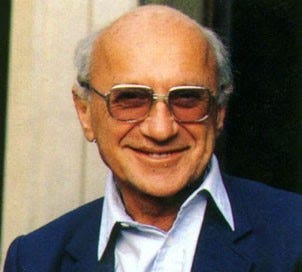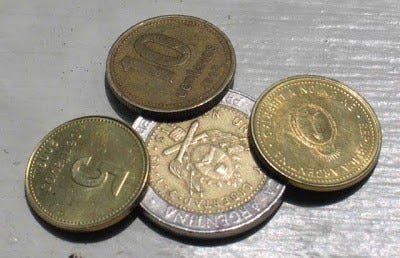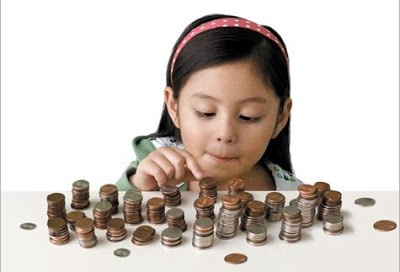Milton Friedman and Reality: Opposing Views
Milton Friedman’s Capitalism and Freedom is rightly known as a classic in political economy. The book’s turns of phrase and clever logic, the radically libertarian viewpoint it presents, and its influence on policy have all contributed to the work’s longevity and impact. But just because something is popular, just because something is well regarded, does not mean it is correct in its argument and philosophy (see American Idol and The Bible for evidence). Milton Friedman’s greatest drawback in his manifesto of greed is his complete lack of any sense of the real world or real life.
To illustrate Friedman’s tenuous grasp of reality, a few examples are in order. Let’s start with the realm of international monetary policy. Friedman advocates a radical readjustment in exchange rates of currency between countries- instead of a gold standard, or exchange rates determined by political leaders in the supposed best interests of their nation, Friedman’s idea is this: “a system of freely floating exchange rates determined in the market by private transactions without governmental intervention… that will enable free market forces to provide a prompt, effective, and automatic response to changes in conditions affecting international trade” (Friedman, p. 67). This would be a difficult at best proposition to enact, to begin with, as it would involve a change in the economies of many nations across the globe. This change in economy, let us say, for example, from a relatively benign social democracy in the capitalist bent, has been tried in the past by Friedman’s disciples, and, as so perfectly explained by Naomi Klein in her, The Shock Doctrine, can only be forced down the throats of the population of said countries by military dictatorships and violent social upheaval.
Let’s assume, to assist Mr. Friedman’s fantasy land, that it is indeed possible to convince the countries involved in a free floating exchange of currency to all participate in such a way as Friedman sees fit; that is, that all nations would choose to participate in this free market manipulation of their national money. What then can we expect of the “prompt, effective, and automatic response[s]” to changes in the international market? The answer is pretty obvious. With a major and decisive moment on the world stage, such as the end of the Cold War, the most powerful member of the world could demand that weaker nations peg their currency to its. In other words, the United States could, for example, demand that Argentina peg its currency to the dollar. In a global free market, such a move would be impossible to counter by any governmental move or ruling body, as such would be completely contrary to the spirit of capitalism. Furthermore, and this is more to the point of Friedman’s lunacy, such a free floating currency would be explicitly determined by fluctuations in the international market. What then happens to the people of the losing nation of the trade war? What do they do when their currency and produce are completely devalued?
But perhaps this is simply a problem of theoretical silliness and Mr. Friedman has a better analysis for other aspects of life and the economy. Yes, perhaps. Unfortunately, Friedman dispels any such illusions and also exposes his economic Darwinism by virtue of what he sees as a benefit of imposition of education costs on parents. The idea of this educational responsibility of the family is against, of course, any notion of communal ownership of children. This shouldn’t come as a surprise, considering that Friedman sees children not as the continuation and evidence of propagation of the species, but instead as commodities. Friedman, to explain, believes that the in his perfect society, children are only bred when one has the financial means to do so (because children are never accidents and condoms never break) and thus “the freedom of individuals to use their economic resources as they want includes the the freedom to use them to have children- to buy, as it were, the services of children as a particular form of consumption” (ibid., p. 33). Yes, Friedman’s view of the family is not one of expected or unexpected joy, not one of the love and bond family has and cultivates, no, Friedman’s family is one of pure economic interpretation.
Friedman’s view of children, propagation and family thus exposed, it is no surprise he regards the financial burden of paying for one’s child’s education as being rather beneficial. After all, “imposing the costs [of education] on the parents would tend to equalize the social and private costs of having children and so promote a better distribution of families by size” (ibid., p. 87, emphasis added). Yes, education of the child may be of importance, and to leave it purely on the shoulders of the parents may prove financially difficult for them, but hey, it’s okay, because it’ll all work out for everyone in the free market’s wonderful equalization of society by limiting the option of childbirth to only those who can fiscally sacrifice and still survive. Friedman’s argument is just fine if one sees the world through the purely quantitative economic view he has, but when left to the devices of reality, it fails. People have sex. Sex is reproduction. Reproduction is children. Friedman may have had a better understanding of sex had we been talking about prostitution.
Milton Friedman wrote a book. The book was Capitalism and Freedom. It is a classic. It is influential and has had a hand in determining some of the unfortunate economic and political policies of the past five decades. But all these accolades of history have nothing to do with the fact that it is based in unreality and theory, and should have no bearing whatsoever in practical matters.








